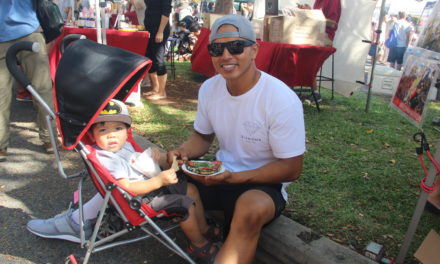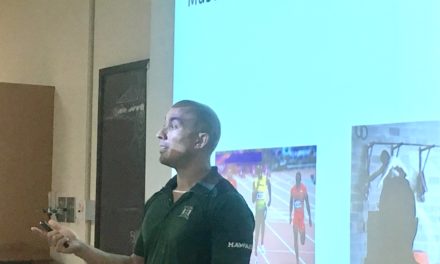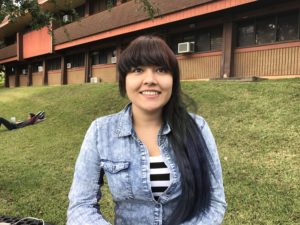By Desiree Pacariem | Staff Writer
Professor Amanda Lee was first introduced to the world of laboratory science as an undergraduate when she began working in a jellyfish biochemistry lab at the University of Hawaiʻi at Mānoa. As a student assistant, she washed dishes in the lab and steadily worked her way into the graduate program.
“Science is ever changing,” said Lee, who was born and raised in Hawaii. “Research is constantly changing as the environment changes. With Covid, the virus mutates. New things come into play that affect our bodies. We have to constantly adapt and develop new technology.”
In 2017, she earned her Ph.D. in Cellular and Molecular Biology. During her studies, Lee authored three peer reviewed publications on kidney disease and development. With a team of other researchers, she located a protein and evaluated its function within the cell. From there, she used mouse models to analyze that protein’s effects on urinary and kidney physiology.
“I just think [it’s] really exciting to be doing something that no one else has ever done before,” Lee said. “You find a niche and you find this new topic where you’re the only one and you’re the expert of it and you’re finding everything you can about it.”
Lee started teaching Physiology 141 and 142 courses in the lab as a graduate assistant at Mānoa. From there, she began teaching Biology 130 and 140 as well as the 141 and 142 series at KapCC where she has remained for the past three years.
By far, the most enjoyable aspect of teaching for Lee is the interactions with her students, as well as talking about science. However, the recent transition to online learning has disrupted that.
“It’s a weird time right now,” Lee said. “I don’t get as much student interaction as [I would] normally.”
While teaching all of her classes online, Lee notes that there is a difference in student participation between distanced and face-to-face classes.
“There has to be a specific type of student that speaks up in class,” Lee said. “With online classes there’s less pressure on the student, maybe [because] they feel like they can speak up more since they’re just typing. “






